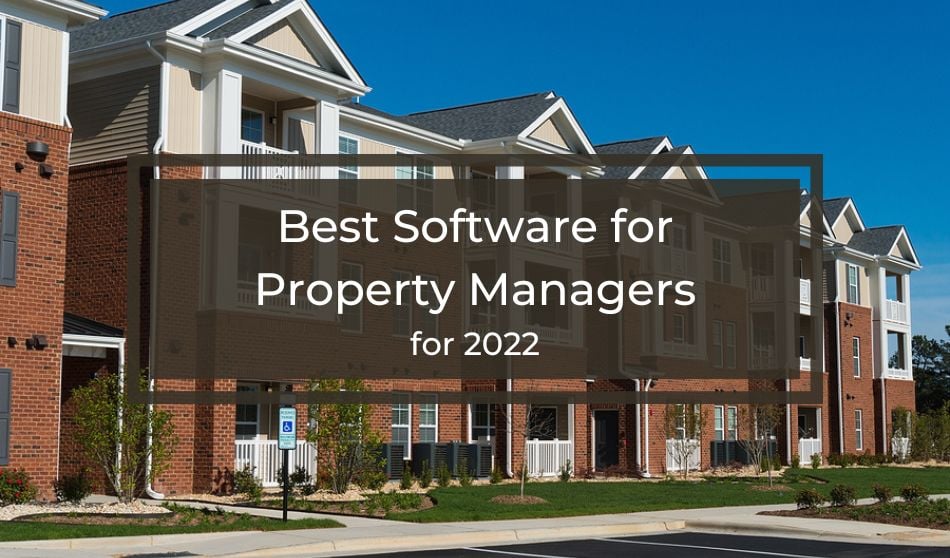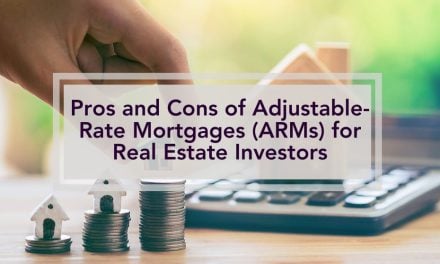
Property managers have unique software needs to help them juggle the many hats they wear. And just like finding the perfect vehicle that meets your transportation needs, the same goes for finding the right software for your property management needs.
Thinking about your business journey and those real estate professionals behind the wheel is a great place to start in finding the right vehicle for your rental business needs.
Rental managers drive a property management company forward and should be considered when choosing property management software.
When searching for the software for property managers, take into consideration not only the tenant and owner facing responsibilities but also the behind-the-scenes tasks property managers handle in their busy days.
Then, look to solutions for how your managers can do those more efficiently.
To determine what criteria your managers need to be included in rental management software, ask yourself this question first:
What tasks do property managers spend most of their time and attention on?
Whether for residential properties or commercial property management, a property manager’s day is filled with tasks related to current and potential tenants’ needs, property maintenance, bookkeeping and data entry, and owner relations. Some of these tasks involve:
Tenancy tasks
- Lease creation and signing
- Inspections
- Collecting rents
- Managing maintenance requests
Property management companies know that tenants are the heart and soul of rental management, and an excellent landlord-tenant relationship ensures these tenant tasks and others in the life-cycle of a tenancy run smoothly.
Vacancies and rental applicants
- Posting vacancies
- Calls, leads, and showing vacancies
- Accepting and reviewing applications
- Conducting tenant screening
Using the best tools to post vacancies and conduct tenant screening will fill your rentals quickly with the most qualified renters.
Choosing the right tenant for your rental property is paramount.
Good tenants make or break profitability as it is costly in both time and money for lease violations and evictions.
Property maintenance
- Repairs (including maintenance requests)
- Routine and preventive maintenance
- Property inspections
- Tenant turnover tasks
The condition of the interior and exterior of the property is not only about keeping it clean but also includes safety measures and aesthetics.
All of these combined, as well as preparing for any emergency, helps keep the property value high and make the rental attractive to keep good long-term tenants.
Bookkeeping and accounting
- Transaction data-entry
- Pulling reports
- Bank reconciliations
- Automated bank deposits
Accounting done well with automated resources reduces human error and eliminates unnecessary tasks like bank deposits, manual invoicing, and notifications.
The best property management software doubles as great accounting software for property managers and will also make audits and tax time a breeze.
Owner relations
- Owner disbursements
- Communications
- Owner reports
- Acquisition and growth
A property management company is hired to care for the rental property portfolio of an owner, and the property manager is responsible for the owner’s satisfaction.
Those owner-related tasks done well with the help of property management software can make all the difference.
What does a rental manager do?
There is much more to being a property manager than the small list above. To learn more about a property manager’s tasks, check out this detailed primer:
If you’re reading this, perhaps you’re a rental property manager, or you already have a property manager onsite, in the back-office, or both. And, now are looking for property management software on the market geared towards managers.
If so, let’s continue looking at the benefits of finding the best property management software, the tools it would include, and what to look for while evaluating software options.
The critical benefit of software for a rental property manager
The key benefit of property management software designed for managers is:
Time savings through efficiencies and automation
Those efficiencies and automation come with additional benefits, such as reduced human error, better communications, easy access to critical information and data, and more.
For instance, saving time decreases stress and increases productivity and profitability.
The more manual tasks are taken off their plate, the more managers can give attention to other essential aspects of property management. They will thank you for having more time to dedicate to tenant and owner relations, property upkeep, and planning.
Not only can efficient property management software reduce burnout from an already stressful environment, but it should also make the occupation more engaging and enjoyable.
Rental property tools to look for in a software
When looking at software, be sure it has these essential tools and features such as:
- Customizable manager roles and user permissions
- Security tools such as two-factor authentication (2FA)
- Online payment processing for automated rent collection
- Robust syndication network to make filling vacancies easy
- Detailed tenant screening reports and online applications
- Tenant portals and turnkey owner portals to cut down on unnecessary calls and emails
- Email and text options with customized templates
- Customizable, reusable, lease, and document creation with e-signature capabilities
- Bulk bookkeeping tasks for posting income and expenses
- Bank deposit, bank sync, and reconciliation tools
- Maintenance and repair request management
- File and document management
But…I’ve always used spreadsheets and QuickBooks; why should I use dedicated property management software?
These separate tools are great stand-alone products that are useful for specific situations. If your business has that need, there is no harm in harnessing the power of those tools.
However, solely relying on accounting and data-entry tools, which are explicitly designed for something other than the rental industry, can be a pain point.
These separate tools don’t communicate with each other and can increase the chances of human error and added stress. They also lack rent collection for online rent payments, making it difficult to collect rent in convenient ways for your tenants.
What do property managers use Excel for?
Microsoft Excel and other spreadsheets like Google Sheets are useful for mathematical calculations and list making.
Some managers attempt to use spreadsheets as their primary customer service management (CSM) tool as well as their accounting platform.
“A step-up from using the old bound ledger books with hand-entered information, spreadsheets came on the scene 35 years ago but are still in use today for tracking numbers and calculations.
The organized data in columns and rows are a convenient way to visualize information and perform mathematical functions.”
But that doesn’t necessarily mean spreadsheets are best to propel your property management company forward.
For a deeper dive into this topic and to find out if continuing to use spreadsheets vs. property management software for rentals is the right choice for you, check out this guide:
But what about accounting software?
Again, accounting software like QuickBooks has its benefits for tracking things like payroll or the amortization of a mortgage loan. But can it carry the load for property management tasks for residential or commercial properties for your rental property management software needs?
To find out if using generic accounting software like QuickBooks vs. property management software is the right choice for you, check out this guide:
Rental Property Accounting: Quickbooks vs. Property Management Software
“QuickBooks is great for general accounting, but it is missing all the tools that will truly make you stand out as the best property manager or landlord.
With software designed specifically to your industry, you will get industry-specific tools like a tenant portal for your tenants to log into and make maintenance requests and pay their rent, an owner portal for owners to review their property performance, and built-in tenant screening so you can screen your tenants right within the same application.”
Accounting software lacks lease management and other rental business operations crucial for property management services.
What to look for when evaluating software for property managers
First, look past the hype and check out genuine reviews from real rental property professionals.
Make sure reviews are reputable and not curated by purchasing placement on a review site. Google reviews are unbiased and can not be manipulated.
Secondly, ensure the software has the tools a residential or commercial rental manager needs most, such as automation of everyday tasks and excellent communication tools.
And be sure to take advantage of a free trial to ensure it is easy to set up, learn, and use.
Then, look for mobile options for using a smartphone or device.
These portable options should extend to both tenants and owners alike so that they can have dedicated portals to access important information. Those portals will save time and energy by eliminating requests for readily available information at the tenant and owner’s fingertips.
Lastly, make sure to pay attention to pricing.
Free is never free, as a free option often needs more of your time. Free options often lack tools and resources, so you’ll likely spend more time on different software solutions to make it all work cohesively. On the other hand, expensive doesn’t equal better.
Let’s amplify this point —
Most property management software companies offer similar tools and features as the next, such as online payments, vacancy syndication, and tenant screening.
The differentiating factors between software providers often come down to how easy the software is to learn and use and the customer support options offered when you need assistance.
Paying more for a property management software program means cutting into your profit.
And, paying more doesn’t guarantee you’ll love using it, have the support you need, or be more efficient at your tasks.
It’s important to note that sometimes the most expensive options are the most complicated.
So how can you know that you are getting the best software for property managers?
You don’t want just good property management software, you want the best.
You want your tenants to pay rent on time with tenant management, maintenance management and maintenance tracking, property owners resources and owner portals, online rental applications and tenant screening tools, marketing tools, expense tracking, and more.
At the start of your search to find the top property management software solution for property managers, look at the current and future needs of your property management business, your clients, and your renters.
Whether you manage a few properties, community associations, or large real estate portfolios, regardless of the number of units, your software should be a property management solution and not a burden.
Once you do, you’ll discover that the software for property managers also include the top features in property management software.
Here are some guides and additional research tools to learn about all the features for managing properties to help you with your journey:
- Best property management software
- Best for online rent payment services
- Easy for rental property accounting
- Property management software that tenants love
From there, do your research and test drive your options, kick a few tires, and be sure the property management software you choose for your managers is affordable and easy to use, learn, and love.





